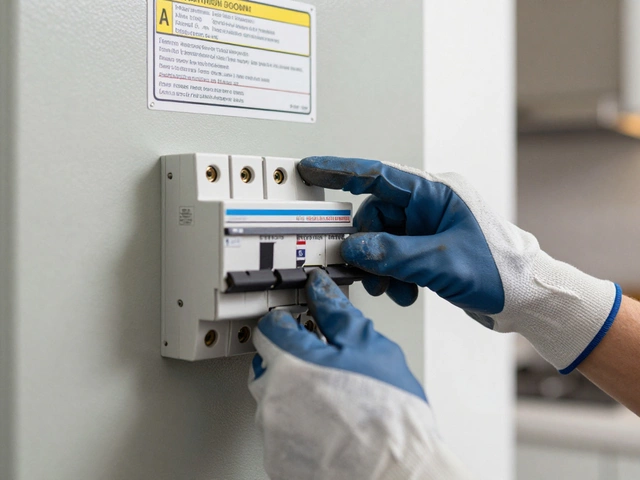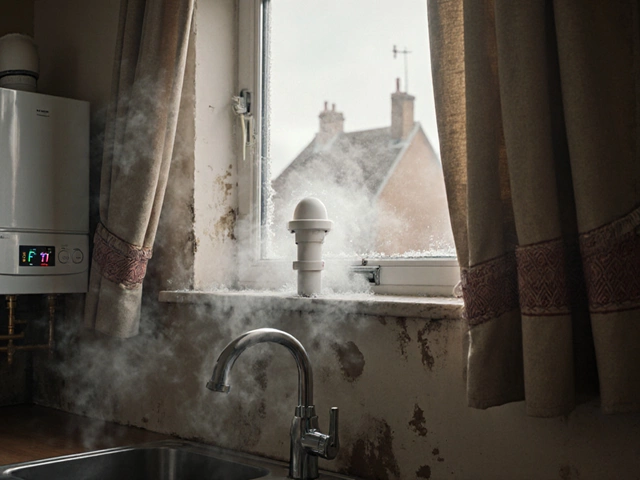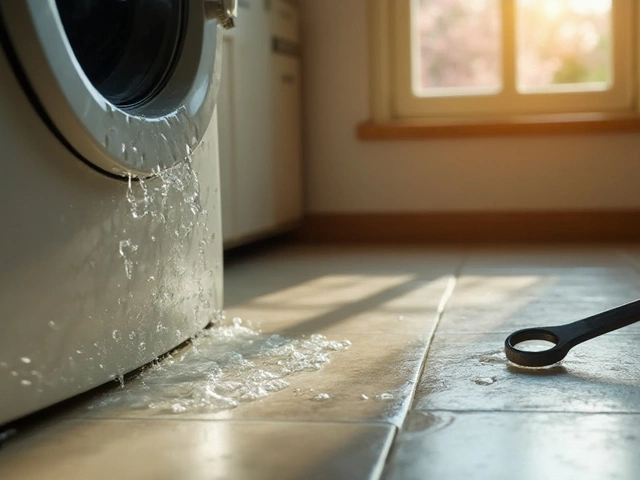Fans make life easier, but when they stop working they can drive you mad. Below you’ll find the most common reasons a fan quits and what you can do before you call a pro.
First, see if the fan is getting power. Check the switch, plug, and any fuse or circuit breaker. If the fan is hard‑wired, make sure the circuit isn’t tripped. A quick reset often solves the issue.
Next, listen for strange noises. A rattling sound usually means dust or a loose blade. A humming noise with no airflow points to a motor that’s trying but can’t turn.
Look at the fan blades or grill. Grease, hair, and dust build up quickly in kitchens and bathrooms. A dirty blade can block airflow and make the motor overheat.
If the fan runs but doesn’t move air, the motor may be seized or the belt (on some extractor fans) could be broken. Inspect the motor housing for burnt smells or visible damage.
Turn off the power before you start any work. Remove the grill or cover – most are held on with a couple of screws or clips. Give the blades a good clean with a damp cloth and a soft brush. This alone often restores airflow and reduces noise.
For kitchen or bathroom extractors, check the rubber grommet and the drive belt. If the belt looks cracked or stretched, replace it – they’re cheap and fit most models. Tighten any loose screws on the housing; a wobbling fan can cause vibration and wear.
If the motor hums but the fan won’t spin, give it a gentle tap with a rubber hammer. Sometimes the motor’s start capacitor is stuck. A tap can free it, but if the problem returns, the capacitor probably needs replacing.
When dealing with heat‑pump fans, make sure the outdoor unit is clear of leaves and debris. A blocked fan will overheat and shut down. Clear a 2‑foot radius around the unit and wipe the blades.
After cleaning and tightening, re‑assemble the fan, turn the power back on, and test it. If it still doesn’t work, it’s time to call a qualified repair technician. Trying to force a motor to turn can cause permanent damage.
Remember, regular maintenance saves you money. A quick wipe‑down once a month keeps most fans running smooth for years. If you notice any smoke, sparks, or a burning smell, shut it off immediately and get professional help.
With these steps, you can handle the majority of fan troubles at home. Keep a basic tool kit handy – screwdriver, brush, and a soft cloth – and you’ll be ready the next time a fan gives you grief.

Extractor fans are essential for maintaining good air quality, especially in kitchens and bathrooms. When they stop working, it might be due to electrical, mechanical, or cleanliness issues. Understanding the root causes of fan failures can save you time and money in repairs. Discover common problems, practical tips, and preventive measures to keep your fan spinning efficiently.

If your extractor fan has suddenly stopped working, it's not just annoying but can lead to bigger problems like excess moisture and lingering odors. This article will delve into common issues with extractor fans and provide practical solutions you can try at home. Learn about potential causes, from power supply problems to sensor malfunctions, along with straightforward fixes. Some tips might even save you from calling in a professional. Get your fan back up and running with ease!

Extractor fans play a pivotal role in maintaining air quality in kitchens and bathrooms by expelling moisture, odors, and smoke. If your extractor fan suddenly stops working, it can lead to persistent humidity or unpleasant smells. This guide provides practical steps for diagnosing and fixing common issues that can cause an extractor fan to malfunction. From checking power supply and fuses to cleaning and replacing parts, understanding the intricacies can save you time and money. By following these steps, you can restore your extractor fan’s functionality and maintain a comfortable home environment.

Proper appliance maintenance can save money, extend lifespan, and keep everything running smoothly at home. Learn about essential maintenance tips for common household appliances and understand why some regular attention can go a long way. Dive into practical tips and advice that are easy to apply and can prevent inconvenient breakdowns.

Learn how to safely fix a burnt electric hob by checking the element, testing with a multimeter, replacing parts, and preventing future damage. Avoid fire risks with these step-by-step tips.

Your hot water stopped suddenly? This guide breaks down the top 7 causes - from low pressure to frozen pipes - and shows you how to fix them yourself before calling a plumber.

Wondering if you can fix your microwave at home instead of tossing it and buying a new one? This article breaks down common microwave problems, what you can safely handle, and when it's better to call a pro. Get practical tips that actually make a difference, plus real talk about microwave safety. Save yourself time, money, and stress with easy-to-follow advice. Tackling your appliance repair just got a whole lot simpler.

Washing machines are among the most used household appliances, making them prone to various problems over time. This article explores the most frequent issues like leaks, drainage problems, and strange noises. Understanding these problems can help in diagnosing issues quickly and considering effective repairs. The article also offers helpful tips to maintain your machine and keep it running efficiently for years. Simple maintenance steps can prevent most common problems from occurring.